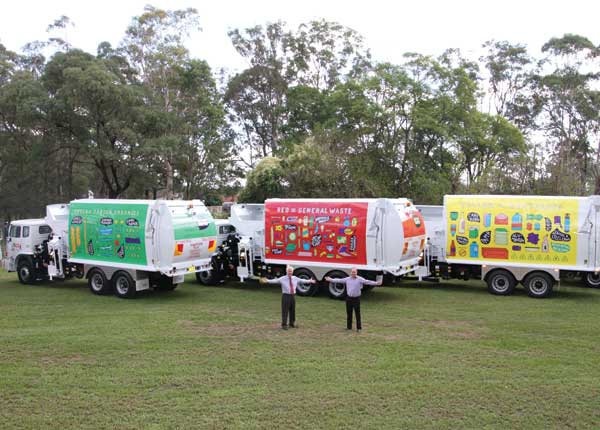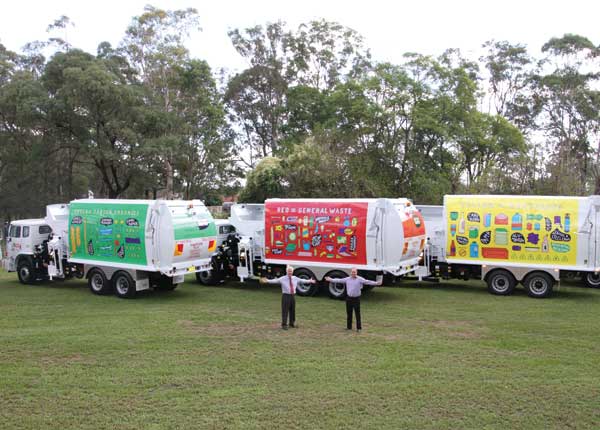
Latte-sipping inner city residents fond of animal free milk substitutes in their trendy coffee blends have long been the butt of jokes from those inhabiting more down to earth outer suburbs.
However Campbelltown City Council in Sydney’s deep south-west more widely known for its quirky annual Fisher’s Ghost festival has hit upon a scheme that well and truly rubbishes the alternative uses for soy bean by-products: powering its garbage trucks.
The council and its kerbside collection provider SITA have announced that a new fleet of 18 rubbish trucks fueled by soy biodiesel will now be picking up bins from Campbelltown’s kerbside, after an in investment by the waste services management company of worth $6.75 million in machines that run on “clean burning alternative fuel.”
The new trucks add to the initial set of 20 [biodiesel] rubbish rigs that were introduced in 2011, an expansion that underscores that both local governments and their service providers remain actively committed to reducing both carbon emissions and running costs as part of their procurement agenda.
SITA estimates that the new trucks will reduce the Campbelltown rubbish fleet’s carbon emissions by more than 293 tonnes of CO2 each year – or the equivalent of taking 64 cars off the road.
Of the total 38 clean fuel trucks SITA now has in service, 25 trucks will be allocated to serve more than 150,000 residents across 33 suburbs in the Campbelltown municipal area, while the remainder will serve neighbouring municipalities.
While the new trucks might be quieter than their predecessors, both Campbelltown Council and SITA are turning up the volume on visual messaging to the community on the benefits of recycling by using the sides of trucks as eye-catching mobile billboards.
SITA Campbelltown’s site manager Allan Chisholm said the side of every truck will feature “prominent messages” to remind residents that red bins are for general waste, yellow bins are for recyclables and green bins for compostable garden waste.
“We’re hoping that we also might inspire the broader Campbelltown community to think more about how they can reduce and recycle their waste,” Mr Chisholm added.
The scale of Campbelltown’s move to an outsourced biodiesel fleet is one that other councils are known to be watching closely in terms of their interactions with suppliers.
The use of plant-based sources for producing diesel products has been a topic of major interest for vehicle manufacturers and buyers because it offers a renewable alternative to ultimately limited fossil fuels.
The biofuel used by Campbelltown’s trucks is known as B20 which is a blend containing 20 per cent based biodiesel produced from soy oil, a waste by-product from farming soy beans for soy bean manufacture.
Although the new trucks run on a quite different fuel source to their previous conventional diesel predecessors, SITA is adamant that both servicing costs and times is the is no greater than it was previously, thus making the rigs an economically sound investment.
The components of the trucks come from different vendors, with the cab chassis superior pack made by Iveco and the bin lift side-loader supplied by MacDonald Johnston.
Comment below to have your say on this story.
If you have a news story or tip-off, get in touch at editorial@governmentnews.com.au.
Sign up to the Government News newsletter

